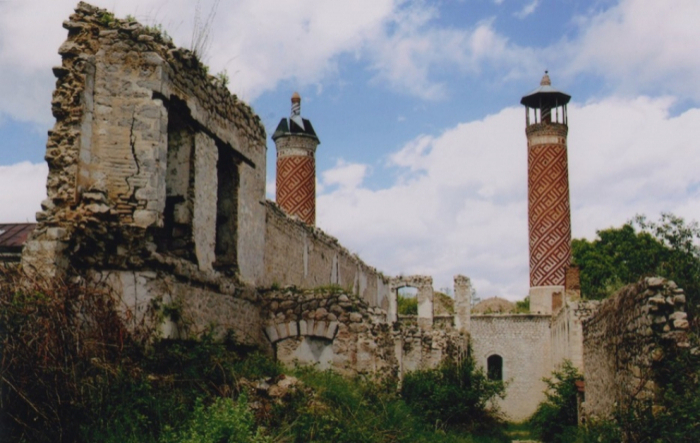In an article, named “The Destruction of Nagorno-Karabakh’s Cultural Heritage”, the author writes that the destruction of cultural and religious monuments in the occupied territory is regarded as a war crime under international law.
“The Hague Convention of 1954 obliges occupying forces not only to respect and preserve cultural property, but to prevent the theft of property in the event of armed conflict,” the report said.
The author also emphasizes that concerns have been raised that Nagorno-Karabakh’s heritage has been systematically destroyed under Armenia’s occupation, as part of its attempt to strengthen its control by wiping out traces of the existing culture.
“In Zangilan, for instance, when the district was retaken by Azerbaijan on October 20th, they could not recognise it after 30 years of Armenian occupation. The historical mosque of Zangilan had been turned into a swine shelter and the 13th century Gtich church, belonging to the ancient Christian state of Caucasian Albania, was found vandalised and smeared with graffiti,” the author said.
The author reported that after nearly one million Azerbaijanis were forced to flee their homes during the conflict in the 1990s, Armenia has systematically removed traces of Azerbaijani culture from the land they left behind.
“The cultural city of Shusha was an important centre of Azerbaijani poetry and traditional mugham music, which was added to the UNESCO’s Intangible Cultural Heritage List in 2008. Thanks to its centuries-old mugham school, also known as one of the first conservatories of the Caucasus, Shusha was home to famous Azerbaijani mugham masters, suchas Haji Husi, Abdulbagi Zulalov and Jabbar Garyagdi. Uzeyir Hajibeyov, who wrote the national anthem of Azerbaijan as well as countless opera plays, including the first Azerbaijani mugham opera ‘Layla and Majnun’, also came from Shusha,” the author wrote.
In contrast to Armenia’s attempt to “Armenianise” the Azerbaijani territory that it occupies, the author said Azerbaijan is seen as a secular and multicultural state.
“It has restored dozens of churches, including Caucasian Albanian churches and the Armenian church in Baku, and numerous synagogues within Azerbaijan, while also providing support for the restoration of churches in France, the Vatican, and elsewhere,” the author wrote.
Having noted that this template is the need of the hour to preserve the cultural heritage of the Caucasus the author called on Armenia to stop the cultural destruction in Nagorno-Karabakh and its surrounding districts, in line with international law.
“Otherwise, the damage already inflicted on the different religions and cultures in the occupied territories would soon be irreversible,” the author said.
More about: Nagorno-Karabakh Shusha
















































